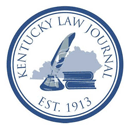UKnowledge > J. David Rosenberg College of Law > Law Journals > Kentucky Law Journal > Vol. 104 > Iss. 2 (2015-2016)
Abstract
In an area characterized by a significant potential for governmental abuse, judicial examination of whether governmental acquiescence in a specific private party search constitutes state action, consequently subject to Fourth Amendment constraints, has often lacked appropriate focus and depth. An examination of the standards used among the federal circuits reveals prevalent approaches which identify the circumstances bearing upon the matter, but which address them under "multi-factored" totality of the circumstances standards. The result has too often been a lack of specificity in discussing the issues and a failure to provide needed clarity for law enforcement.
This article examines the analyses among the circuits. It then suggests a restructured inquiry that employs a rebuttable presumption that evidence should be suppressed if there has been sufficient police encouragement to search. Consistent with state action analysis in other contexts, the suggested approach would emphasize the importance of a central focus upon the nature of the governmental encouragement. It would also retain past productive judicial observations concerning the countervailing significance of independent private motivations, facilitate a detailed examination of the relevant issues, and address other shortcomings of the current approaches.
Recommended Citation
Shapiro, Eugene L.
(2016)
"Governmental Acquiescence in Private Party Searches: The State Action Inquiry and Lessons From the Federal Circuits,"
Kentucky Law Journal: Vol. 104:
Iss.
2, Article 3.
Available at:
https://uknowledge.uky.edu/klj/vol104/iss2/3
